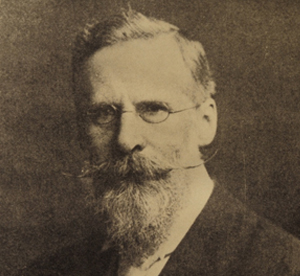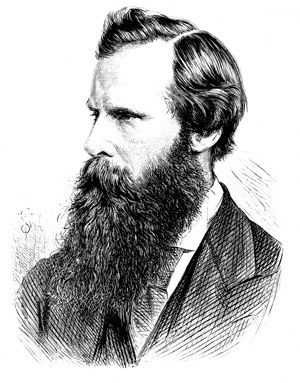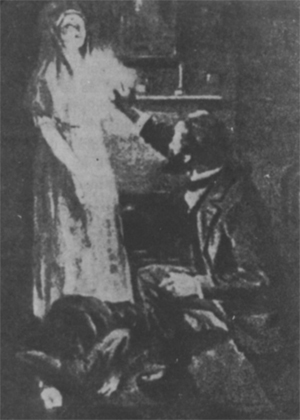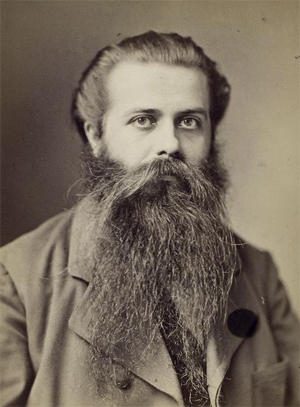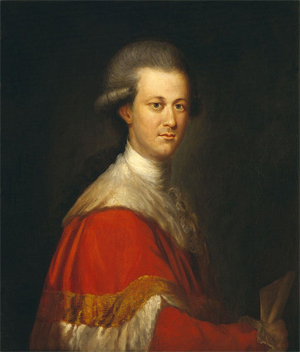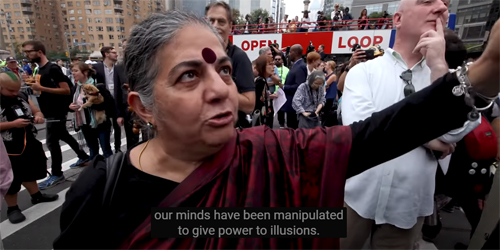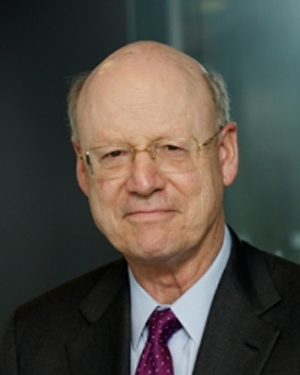Did [Bertrand] Russell Advocate Preventive Atomic War Against the USSR?
by David Blitz
Philosophy and Honors Program / Central Connecticut State U.
New Britain, CT 06050, USA
[email protected]
The wind-up for that 1945 nuclear bombing of explicitly civilian targets, had been test-run during the last months of the war in Europe. Planned bombing of civilian populations of targeted cities, under so-called Lindemann/"Bomber Harris" doctrine, had, like Montgomery's "Market Garden" hoax, actually prolonged the war—and, thus, also killed more U.S. soldiers—by resuscitating what [had] been Germany's fading willingness to continue to fight. The fire-bombing of Tokyo had been a similar piece of strategic folly. The needless use of the only existing nuclear weapons in the U.S. arsenal, was the beginning of what became known as the Rand Corporation's post-war "utopian" revolution in military affairs. That evil uncle Bertrand Russell whom confused children have adored as a fighter for peace, was the actual inventor of that United States' doctrine of "preventive nuclear war," which was the actual motivation for the bombing of Hiroshima and Nagasaki. What that bombing accomplished, for the long run, was to set the precedent needed to institutionalize that utopian dogma of a U.S. nuclear revolution in military affairs, which is Cheney's doctrine today....
That bombing of Hiroshima and Nagasaki thus divided the military and related factions of the U.S. chiefly, between the supporters of the U.S. traditional doctrine of strategic defense—as represented by those such as post-war Generals of the Armies MacArthur and Eisenhower—and, their opponents, the utopian followers of "preventive nuclear warrior" Bertrand Russell. Rumsfeld and his crew typify the "military-industrial complex" utopians at their worst, and most stupid today. A misguided President Truman had leaned toward the side of the same utopians who gave us, later, the 1964-72 Indo-China War, and have also pushed that so-called revolution in military affairs, which dumped us, by means of fraudulent pretexts, into both the 1964-1972 Indo-China war and the presently suppurating folly of rising bloody, irregular warfare attrition in Iraq....
Truman's dropping the bombs on Hiroshima and Nagasaki was an effect, of the terrorist, Nietzschean type prescribed by Professor Leo Strauss's crony, Synarchist Alexander Kojève. It typified the right-wing, pro-Synarchist turn of the post-Roosevelt U.S.A. That expresses the essence of the trouble with Harry.
A dear friend's eyewitness account of OSS chief General Donovan's emerging, deeply saddened, from a visit at the failing President Roosevelt's office, reports Donovan sadly murmuring to the effect: "It's over." Many among the accomplishments of the U.S.A. under FDR's leadership could not be rooted out by the Truman Presidency, but Truman cleared the way for those who would ruin the FDR legacy as early and often as possible, the right-wing which had used the victory in Normandy as the signal to dump, as much as possible, the policies of a Roosevelt they had always disliked, and who they no longer considered indispensable. Truman cleared the way for an attempted, top-down takeover of U.S. strategic domestic and foreign policy by those utopians President Eisenhower later identified as a "military-industrial complex," the followers of the "preventive nuclear war" doctrines of Bertrand Russell. The other name for that crew of utopians was, and is "The Synarchist International."....
Suppose you were, for example, Russia, China, or India. Suppose you knew that your nation was pre-designated for a medium-term nuclear-warfare attack, or for destruction by other means, if you failed to resist the attacker. Suppose that other nations of Asia shared that concern. How might you react?
How did Russia, China, and North Korea react, during the Korean War, to their conviction that they faced similar threats from the U.S. Truman Administration? How did they read a pattern of certain provocative moves from the Truman Administration. What did these nations, which believed themselves targets, read into the publication of the threat from the most evil living person of the world at that time, Bertrand Russell, in Russell's September 1946 publication of his argument for his doctrine of "preventive nuclear warfare" against the Soviet Union?"
Compare that with Cheney's repeated threats, since he was Secretary of Defense in the 1989-1993 Bush Administration, of nuclear warfare against, implicitly, post-Soviet Russia and other targets? Compare that with the impact of Cheney's escalating threats since the evening of Sept. 11, 2001. If you knew that powerful enemy was intent upon crushing your nation, and also others, out existence, and if you were such a targeted nation, which had the potential means to wreak a terrible penalty upon that foe, would you seek to define a defense, even at the risk of losing half of your population? The history of land wars in Asia on this account, including China's role in the Korean War, and the case of U.S. experience with its war in Indo-China, should give the wary a hint of something to think about....
The combination of Truman's order for the nuclear bombing of Hiroshima and Nagasaki, Bertrand Russell's publication of his September 1946 declaration of a policy of preventive nuclear warfare targeting the Soviet Union in particular, and President Harry Truman's endorsement of Winston Churchill's widely celebrated "Iron Curtain" address, had defined a situation in which both Stalin's Soviet Union and Mao Tse Tung's China shared the belief that the U.S.A. and Britain were determined to use nuclear weaponry to threaten them with virtual extinction as states. Against that background, the type of U.S. provocations conducted by the Truman Administration in Asia, as identified in the chapter of Barnett which I have referenced, brought matters to a threshold, in a way broadly analogous to the kind of "pre-World War" tension which the continuing antics of Svengali Cheney and the Trilbys of both the Bush Administration and Democratic Party have combined to create today.....
Apart from Hiroshima and Nagasaki, the most significantly tell-tale single piece of evidence against Truman, is that Roosevelt had intended to conclude the war with the liberation of the planet from colonialism and related practices. Truman acted to support the British policy of restoration of colonialism by military force, in places where it had been overthrown in the course of the war. Truman's action thus tipped the balance, to restore the institution of imperialism as a established feature of the United Nations Organization.
Not long after Truman's retirement, and the death of Josef Stalin, the most evil man of the world at that time, Bertrand Russell, negotiated an accommodation with the new Soviet leader Khrushchev, through the facility of a London Conference of World Parliamentarians for World Government. Russell's intention was, as usual for him, world government, and his own burning hatred against the existence of, above all, the United States. His often restated intent was to establish the kind of world government which he and H.G. Wells had prescribed in Wells' 1928 The Open Conspiracy. It was on behalf of world government, explicitly, that Russell had explicitly proposed preventive nuclear warfare as the road to utopia and peace, publically and repeatedly, from 1946 on.
-- World Nuclear War When? McAuliffe's Deadly Delusions: or, How Harry Truman Defeated Himself, by Lyndon H. LaRouche, Jr., Executive Intelligence Review
Russell’s statements in the immediate post-World War II period about war with the Soviet Union have generated considerable controversy. Some commentators interpret his declarations as if he advocated a preventive war against the Soviet Union. To the contrary, Russell advanced a strategy of conditional threat of war with the aim not of provoking war, but of preventing it. However, Russell was unable to satisfy his critics. Despite initial accuracy in his restatements of what he had originally said, Russell erred in later affirmations, lending credence to the erroneous view that he had something to hide.
INTRODUCTION
Whether Russell advocated a preventive atomic war against the USSR in the period 1945-491 remains a matter of controversy. It has been discussed by all biographers of Russell from Alan Wood to Ray Monk, and was the subject of a debate in the pages of Russell between Douglas Lackey and Ray Perkins, Jr. It was recently the object of an exchange of letters between Nicholas Griffin and Lord Lawson in The Economist. The subject is rendered more noteworthy not only because of the perceived inconsistency of a noted pacifist advocating war—and atomic war at that—but also because of the numerous occasions on which Russell denied having advocated such a position, then recognized that, in a way, he had.2
My claims are the following: (a) Russell’s position with respect to the USSR during the period was consistent with the philosophy of non-absolute pacifism which he shared with Einstein, and is best understood in terms of the exception clause which he had previously invoked during World War II; (b) Russell did not advocate preventive war, in the sense of making a call for immediate and unconditional war—rather, he proposed a conditional threat in order to prevent war; (c) Russell’s policy of conditionally threatening war was a strategy for a specific period of time during which he thought pressuring the Soviet Union might induce it to accept international authority and avoid the arms race; (d) Russell assigned varying probabilities to the likelihood of war, from low to high depending on circumstances, but his preference was for a negotiated agreement separating the opposing Communist and anti-Communist forces, despite the low probability he assigned to such an outcome; (e) Russell’s denials of having advocated preventive nuclear war were consistent with his public statements, and not an attempt to cover up his motivation, despite later confusions in his recollections of what he said.
NON-ABSOLUTE PACIFISM AND EXCEPTIONAL WARS
That Russell would argue in favour of threatening the USSR with war— which he did on many occasions during the period under question— would seem to be inconsistent with his position as a pacifist, and therefore startling and even shocking. But Russell on almost as many occasions indicated that he was not a pacifist in the traditional sense of the term: an individual opposed to all wars at all times and places. Russell was a non-absolute pacifist, and it is in this context that his statements need to be situated in order to be properly understood.3 Non-absolute pacifism as a philosophy consists of two related claims: (1) the principle that wars are evil and must be prevented, and (2) the recognition that some, an exceptional few, can be supported as necessary evils. Russell admitted that the Second World War fell under the latter, rather than the former clause, and he believed, at the beginning of the post-war period under consideration, that a similar exceptional situation might still be at hand:
I make, however, one exception to the condemnation of wars in the near future. A powerful group of nations, engaged in establishing an international military government of the world, may be compelled to resort to war if it finds somewhere an opposition which cannot be peacefully overcome, but which can be defeated without a completely exhausting struggle.4 (Italics added)
The salient point is to determine what type of opposition justified invoking the exception clause. The opposition which Russell had in mind was opposition to the strategic objective of world government. Russell, who had been converted to pacifism as a result of his debates with Louis Couturat during the Boer War, had been shocked by the outbreak of the First World War. He came to realize that an abstract appeal to humanity’s best ideals would often be submerged by that same species’ baser instincts. Consequently, he became an advocate of world government as a means of restraining this tendency. The role of a world government, Russell believed, should be limited to questions of international security. But it had to possess an armed force equipped with the most modern weapons, in order to force recalcitrant states to accept the international order. The achievement of world government would not in itself result in world peace, but it would provide the privileged means to progress towards that ultimate goal.
After World War II, Russell identified the Soviet Union as the main threat not only to world peace, but to western civilization. For Russell, Russia—the term which he used in preference to the USSR—had replaced Nazi Germany as an expansionist, totalitarian regime. Russell had not always held such a view. He had initially welcomed news of the Soviet revolution in 1917, mainly because it meant that the Russians withdrew from the world war which he opposed. But in the course of his visit to the Soviet Union in 1920 he was repelled by the doctrinaire Marxist ideology of the Communist Party and the despotic nature of the Bolshevik state. Nonetheless this did not lead him to designate the Soviet Union as an enemy of world peace before World War II. What changed after 1945 was that the Soviet Union emerged from the war with newly acquired territory—including the Baltic republics—and a clearly expressed desire to expand its sphere of influence throughout Eastern Europe and the Far East. From a sympathetic point of view this might have appeared as a purely defensive policy, aimed at securing a buffer zone for the Soviet Union, which had suffered some 25 million dead in the preceding conflict. But Russell shared the predominant Western view that Soviet actions, either militarily through its expanded Red Army, or politically, through its client Communist Parties, were aimed at increasing the Russian sphere of domination, up to and including Western Europe.
There was certainly evidence for this view. In the immediate post-war period, Russell was alarmed by what he believed to be the systematic mistreatment of German refugees by the Russians and their allies, and publicly denounced this in the House of Lords, comparing the Soviet actions to those of the defeated Nazis: “The Russians, and the Poles with Russian encouragement, have, I regret to say, adopted a policy of vengeance, and have so far as I am able to discover, committed atrocities very much on the same scale and of the same magnitude as those of which the Nazis were guilty.”5 His concern grew as the Soviet Union rejected the Baruch Plan for the international control of atomic energy and nuclear weapons (1946-47), and reached a further high point during the Berlin Blockade (1948-49) when the Soviets blocked all ground traffic in and out of the city, forcing an airlift to supply its citizens with food and supplies. All during this period Russell was growing increasingly alarmed at the prospect of a nuclear arms race once the Soviet Union developed the atomic bomb, as it did in 1949.
Russell’s view during this period of the threat posed by the Soviet Union was based on these concerns, and not, as was the case with the official “cold warriors” in the US and Britain, with the anti-capitalist goals of the Communists which were deemed a threat to the Western powers’ wealth and control. To the contrary, Russell was himself a socialist, though of a moderate “guild socialist” orientation. Moreover, unlike the “cold war” strategy of the right, Russell was unwilling to sacrifice civil liberties at home, and progressive governments abroad, to the anti-Soviet crusade. So while his position was strongly anti-Soviet, it was not one focused on overthrowing the Communist regime at all and any cost.
Russell’s view favouring conditionally threatening war was not an isolated comment or expression of personal feeling. Rather, it was part of a plan he had developed to promote global peace. In isolation the statement appears to be in direct contradiction to his pacifism; indeed it might be seen, as Monk sees it, as a sign of bellicism. But as part of an overall policy it was aimed at serving Russell’s ultimate goal of peace. Russell often talked of his “policy” towards the Soviet Union, and in what follows, I argue that this was a strategy aimed at removing the main obstacle to world government.
THREAT AS A STRATEGIC POLICY
Typically, since Clausewitz, strategy has been considered as the coordination of battles to win a war, and tactics as the coordination of forces to win a battle.6 In the political sense, strategy is the focusing of efforts to achieve a national, or in the case of Russell, an international objective, either directly, by a decisive achievement, or indirectly, by removing an obstacle to a goal. For Russell, the ultimate end was world peace; the strategic objective was international government, and the strategic obstacle was the Soviet Union. The problem was not primarily the Soviet social structure, but rather its leaders’ rejection of trans-national authority under the guise of protecting state sovereignty, coupled with their ambition of increasing the Russian sphere of influence, up to and possibly including Western Europe. The strategy which Russell proposed— that of conditionally threatening war should the Soviet Union not accept specific conditions, such as agreeing to the international control of atomic energy—was specific to the international context of the second half of the 1940s.
The relationship between strategy and goals is not straightforward. Edward Luttwak, in his study of strategy as the logic of war and peace, has drawn attention to this complicated relationship, which he terms “paradoxical”.7 Strategy has an inner logic which often violates common- sense intuitions about the relationship between ends pursued and means that are used. As an example, Luttwak notes that it may be better for a military commander to move forces along the poorer of two roads leading to a desired target, since the better road will likely be more heavily defended. A slower advance is, “paradoxically”, the better choice. Similarly, a military defeat, by drawing enemy forces from a more important task, may facilitate ultimate victory. At the strategic level, it may be necessary to use force to restore peace. A recent example was the NATO bombing of Serbian forces, where the use of deadly force was employed to end the more serious genocidal actions against the Albanian minority. Russell’s threat of force was a paradoxical strategy in this sense as well: the threat of war was intended to prevent war, and served the ultimate goal of world peace.8
That Russell’s policy was a strategic one focused on a time-specific obstacle is indicated by his willingness to change it when circumstances changed. Once the arms race was fully engaged, in particular, after both the US and USSR had exploded hydrogen bombs—the US in 1952 and the USSR two years later—Russell shifted to a different strategy. The ultimate aim (world peace) and the strategic goal (international government) remained the same, but the obstacle was now the arms race to which both the US and the USSR had become committed. The strategic policy that Russell adopted was to propose a special mediating role for the neutral countries, which he hoped would make an objective inquiry into the disastrous effects of nuclear war, and then use their influence to persuade the superpowers of the folly of their course of action. But even India, with whose government Russell was quite close, was unable to take up this proposal, and the policy was abandoned by the second half of the 1950s. By then Russell was persuaded that the US was becoming the major obstacle to world peace, indicated in part by his interpretation of the public exchange of letters he undertook with Khrushchev and John Foster Dulles (acting on Eisenhower’s behalf ) in 1958,9 and then further confirmed by his analysis of the resolution of the Cuban Missile Crisis of 1962, where he valued above all Khrushchev’s removal of the missiles as a means of ending the conflict. By the mid-1960s, under the influence of the war in Vietnam, Russell identified the US as the main obstacle to world peace. This led to Russell’s participation in the campaign to denounce the US intervention in Vietnam, the organization of the International War Crimes Tribunal, and Russell’s support for the Vietnamese liberation movement, all of which shocked Russell observers as much as his threat of war against the USSR a quarter century earlier.
In short, Russell passed through at least three phases in his analysis of the strategic obstacles to international government and world peace: (1) the Soviet Union as the main obstacle in the period 1945-49; (2) a period in the 1950s when both superpowers, and their arms race, were identified as the main obstacle; and (3) the period of the 1960s when he identified the United States as the main obstacle. As the strategic obstacles changed, so did Russell’s policy, with the additional feature that each succeeding strategy became less abstract and more personal: from the conditional threat of war, about which Russell had little control beyond distant relations with the British Labour government, to the proposal for mediation by neutrals, for which Russell had contacts at least with the Indian authorities and a number of leaders in developing countries, to the ban-the-bomb protest movements, where he exercised leadership positions. This process culminated in the establishment of the Bertrand Russell Peace Foundation, with Russell as the centre of an informal diplomatic network of relations with foreign heads of state.
PRESSURING THE SOVIET UNION
In order to better understand the character of the policy that Russell favoured for dealing with the Soviet Union during 1945-49—the threat of force, up to and including its use—it is helpful to compare his strategy with that proposed by the one other prominent thinker who shared his non-absolute pacifism: Albert Einstein. Both men agreed on the need to prevent a nuclear arms race in order to avoid omnicidal disaster, and both agreed on the need for international government as guarantor of world peace. But they disagreed on the means to accomplish this strategic objective, and therefore on policy. For Russell, the United States should take the lead in forming an international alliance, which would be the embryo of a future world government. The Soviet Union should be pressured, up to and including the threat of war, to join. Russell went on to affirm that it might only be as the result of yet another war that such an international organization would be set up, using compulsion to bring the defeated power—which he assumed would be the Soviet Union—into the world government:
There might be a period of hesitation followed by acquiescence, but if the USSR did not give way and join the confederation, after there had been time for mature consideration, the conditions for a justifiable war, which I enumerated a moment ago, would all be fulfilled. A casus belli would not be difficult to find.
Either the voluntary adherence of Russia, or its defeat in war, would render the Confederation invincible, since any war that might occur would be quickly ended by a few atomic bombs. (“Humanity’s Last Chance”, p. 9)
At the strategic level, Russell believed that firmness and leadership were the only alternative to appeasement. His argument was based on reasoning by analogy: Just as appeasement had failed to stop Nazi Germany in the period leading up to World War II, so too would it fail with Soviet Russia. For this analogy to work one has to accept, as Russell did, that Soviet Russia was now playing the same role in the international system as the Third Reich had previously done. A second aspect of Russell’s strategy, the call for American leadership, was also based on the analogy to the pre-war situation. US isolationism, Russell believed, had encouraged Hitler to launch his attacks both to the west and east; while US involvement in the war after Pearl Harbor hastened the German and Japanese collapse. In the current situation, a return to US isolationism would likewise serve to embolden Stalin, while the assumption of international leadership by the US would have the opposite effect, moderating and perhaps ending his ambitions, particularly in Western Europe. Russell’s conclusion was that only a form of confrontation, to be formulated as threats to compel Russian compliance, would be successful:
The policy most likely to lead to peace is not one of unadulterated pacifism. A complete pacifist might say: “Peace with Russia can always be preserved by yielding to every Russian demand.” This is the policy of appeasement, pursued, with disastrous results, by the British and French Governments in the years before the war that is now ended. I myself supported this policy on pacifist grounds, but I now hold that I was mistaken. Such a policy encourages continually greater demands on the part of the Power to be appeased, until at last some demand is made which is felt to be intolerable, and the whole trend is suddenly reversed. It is not by giving the appearance of cowardice or unworthy submission that the peace of the world can be secured.10
Einstein, like Russell, was a non-Marxist socialist who was opposed to the Soviet dictatorship, but his evaluation of the Soviet Union was less negative, and his tactic toward it, though not one of appeasement, was nonetheless rather different from Russell’s:
I am in favour of inviting the Russians to join a world government authorized to provide security, and if they are unwilling to join, to proceed to establish supranational security without them…. Those who create the organization must understand that they are building with the final objective of obtaining Russian adherence.11
The source of the difference was twofold. On the one hand, Russell’s criterion for invoking the exception clause of non-absolute pacifism was weaker than Einstein’s. Whereas for Einstein, the enemy force against which war could be justified had to aim at the destruction of life “as such”, placing the threat at the level of Nazi genocide, for Russell it sufficed to have an opponent determined to destroy modern civilization, through the elimination of its cultural elite, thus placing the threat at the level of the Soviet gulag. Einstein focused on the Soviet people, who had lost so many of their number to the Nazi onslaught, while Russell focused on the Soviet leadership, which aimed at increasing its sphere of influence in Europe.
Whereas Russell’s policy was one which involved a threat of war, Einstein’s was not, and it might be preferred on these grounds alone. However, given Russell’s analysis that the main obstacle to an effective world authority was the Soviet Union, then not dealing with the Soviet problem, and deferring it to later as Einstein proposed, would only lead to failure. International organizations in the twentieth century were developed, and most major states acquiesced to them, only in the aftermath of major wars—the League of Nations after World War I, and the United Nations after World War II. Leaders were willing to forfeit some, though not much, state sovereignty in the hopes of preventing further global conflict. By not dealing with the most pressing problem at hand, Einstein’s proposal was not such as to motivate states to accept the further, more significant limitation on national sovereignty presupposed by their participation in the sort of international authority which he and Russell proposed, and which went far beyond the relatively powerless United Nations Organization, where the major powers had the veto. Einstein held it possible to deal directly with the strategic objective, and bring about real international authority without dealing with the Soviet problem, whereas for Russell this could not be accomplished except first by removing the main obstacle, which was Russian intransigence and expansionism. This was the point of Russell’s refusal to collaborate with Einstein in 1947 (though they were able to work together in the changed circumstances of the mid-1950s).
The question remains: was there an appropriate strategic policy in 1945-49 other than that of threat, which would not involve appeasement, but would be more active and likely to mobilize than Einstein’s? Here a weakness in Russell’s argument appears: although he stated that he was privately in contact with government specialists on military strategy, he did not publicly debate the strategic and policy theorists of the time. In particular, he did not analyze, or even appear to be acquainted with, the writing of authors such as George Kennan who were addressing the same problem. Kennan is best known for his “long telegram” just after World War II, alerting US policy-makers to the threat of Soviet foreign policy in the post-war period, and the “X” article in Foreign Affairs which proposed the policy of containment to deal with that threat.12
Kennan based his analysis on two factors: “the innate antagonism between capitalism and Socialism” (p. 572), which he took to be the underlying factor, and the Soviets’ belief in their own infallibility, which he took to be an aggravating factor. Nonetheless, he identified one aspect of Marxist ideology that, curiously enough, mitigated the immediate threat: the belief in the inevitability of Communist victory. As a result, the Kremlin was “under no ideological compulsion to accomplish its purposes in a hurry” (p. 574), and could allow itself the luxury of patience in dealing with long-term ideological questions. Kennan then proposed his policy of containment: “In these circumstances it is clear that the main element of any United States policy toward the Soviet Union must be that of a long-term, patient but firm and vigilant containment of Russian expansive tendencies.” And he continued, in words that should have called for a response from Russell:
It is important to note, however, that such a policy has nothing to do with outward histrionics; with threats or blustering or superfluous gestures of outward “toughness”. While the Kremlin is basically flexible in its reaction to political realities, it is by no means unamenable to considerations of prestige. Like almost any other government, it can be placed by tactless and threatening gestures in a position where it cannot afford to yield even though this might be dictated by common sense.… For these reasons it is a sine qua non of successful dealing with Russia that the foreign government in question should remain at all times cool and collected and that its demands on Russian policy should be put forward in such a manner as to leave the way open for a compliance not too detrimental to Russian prestige. (Pp. 569-70)
Kennan proceeded from a much narrower perspective than Russell: his strategic goal was the defence of the national interests of the United States, whereas Russell saw the need for the US to take the lead in establishing international authority that transcended national interests. Nonetheless, both identified the Soviet Union as the main obstacle to achieving their strategic objectives, and as is evident from Kennan’s other writings, both had a commitment to world peace. It would therefore have been interesting to have Russell’s opinion on Kennan’s analysis of flexibility in Russian foreign policy and his warning on the futility of threats as a means of modifying Soviet behaviour. This remains a weakness in Russell’s project, as he was unable to refine his policy through debate with related, but differing strategic plans. As a result, Russell’s many statements on the question, in newspapers, journals and broadcasts, tended to be more repetitive than amplificative. We are left with a more limited question: whether Russell’s threat of war amounted to an advocacy of preventive war?
CONDITIONAL THREAT OF WAR ("CTW") VS. ADVOCACY OF PREVENTIVE WAR ("APW")
[T]he theory of internal collusion, which asserts that the CIA and the FBI let it happen (sometimes abbreviated as LIHOP, let it happen on purpose);...[and] the more radical approach which is endorsed here, namely that 9/11 was the product of a network of moles inside the US government and intelligence agencies, backed up by covert action teams of expert professionals, seeking to provoke a war of civilizations as a means of shoring up Anglo-American world domination. The acronym for this approach is MIHOP – made it happen on purpose.
-- 9/11 Synthetic Terror Made in USA, by Webster Griffin Tarpley
In what follows I will refer to the policy advanced by Russell as “conditional threat of war”, formulated as follows:
CTW: If Russia does not acquiesce in the Baruch Plan for the international control of atomic energy, then the West should conditionally threaten war.
This occurred in a variant form before the Baruch Plan, and after as well (during the Berlin crisis, for example), where the focus was on directly warlike activities of the Soviet Union: if Russia does not cease its aggressive activities towards European countries, then the West should threaten war conditionally. This implied as well that the West should be militarily prepared to deal with a provocation by the Soviet Union, a point Russell stressed especially after 1949, to the point of supporting the development of hydrogen weapons as a deterrent to the Soviet A-bomb (a position he abandoned after the devastating effects of the hydrogen bomb were revealed in tests during 1952-54).13
I will contrast this position with a different one, “advocacy of preventive war”, a position often attributed to Russell, but one that I will argue he did not defend:
APW: Because Russia did not acquiesce in the Baruch Plan for the international control of atomic energy, the West should wage preventive war.
Similarly, a modified version of APW can be formulated substituting aggression against a European country for rejection of the Baruch Plan as the trigger for war, or “casus belli”: because Russia has fomented a Communist coup in country X (or invaded it), the West should wage immediate, preventive war. APW contradicts the principle of non-absolute pacifism which Russell advocated, according to which the nonabsolute pacifist may acquiesce to armed conflict only as self-defence against a real aggression putting into jeopardy civilisation itself. A preventive war is conventionally defined as “a war initiated in the belief that military conflict, while not imminent, is inevitable, and that to delay would involve greater risk.”14 To initiate war on the belief or fear that it is inevitable violates Russell’s philosophy in two ways: firstly, in ascribing inevitability to historical events, a position more in line with Hegelianism or Marxism than with Russell’s view of history as contingent; and secondly, in initiating attack rather than responding to one.15
CTW, however, does not contradict non-absolute pacifism, if, as has been argued above, it is a strategy to deal with an obstacle to attaining the necessary mechanism—that of world government—through which perpetual peace alone can be achieved. To advocate preventive war (APW) is to urge the mobilization of military forces for the waging of war; whereas to conditionally threaten war (CTW) is to urge the object of the threat to satisfy the conditions necessary to avoid the war.16
Two days after resigning as the Bush administration's top weapons inspector in Iraq, David Kay said Sunday that his group found no evidence Iraq had stockpiled unconventional weapons before the U.S.-led invasion in March.
He said U.S. intelligence services owe President Bush an explanation for having concluded that Iraq had.
"My summary view, based on what I've seen, is we're very unlikely to find large stockpiles of weapons," he said on National Public Radio's "Weekend Edition." "I don't think they exist."
It was the consensus among the intelligence agencies that Iraq had such weapons that led Bush to conclude that it posed an imminent threat that justified the U.S.-led invasion, Kay said.
"I actually think the intelligence community owes the president rather than the president owing the American people," he said....
"It is not a political 'gotcha' issue. It is a serious issue of 'How you can come to a conclusion that is not matched in the future?'"
Other countries' intelligence agencies shared the U.S. conclusion that Iraq had stockpiled such weapons, though most disagreed with the United States about how best to respond....
Secretary of State Colin Powell defended the administration's moves Sunday. "Military action was justified by Iraq's violation of 12 years of U.N. resolutions," he said in an interview with First Channel Russia during a visit to Moscow.
"Iraq had the intent to have weapons of mass destruction and they had previously used weapons of mass destruction. They had programs to develop such weapons," Powell said.
"And what we were trying to find out was what inventory they actually had, and we are still examining that question."
Saddam Hussein was given the opportunity to divulge what his country was doing but chose not to do so, which resulted in the U.S.-led campaign to oust him, Powell said.
"And the world is better off, the Iraqi people are better off, because Saddam Hussein is gone," Powell said. "And we will continue to make sure we find all elements of his weapons of mass destruction programs and whatever weapons there might be."
-- Kay: No Evidence Iraq Stockpiled WMDs: Former chief U.S. inspector faults intelligence agencies, by CNN
Part, but only part, of the distinction between the CTW and APW lies in the use of the terms “advocate” and “threaten”. I suggest that “advocate” designates the intended goal of a policy, while “threaten” indicates a subordinate strategy. Consider the analogy to a prosecutor in court. She has as her goal, for which she is the advocate, proving the guilt of the accused. She will develop a strategy for the prosecution depending on the specific circumstances of the case. Suppose that a defence witness, whose past is shady and who is known to lie, falsely testifies for the accused. The prosecutor may threaten that witness with charges of perjury if he continues to lie on the stand. Now, we readily admit that the prosecutor advocates the guilt of the accused, proposes a strategy for pursuing the case, and conditionally threatens the witness as part of it.
This analogy can be extended as follows. Suppose the prosecutor, once a guilty verdict has been obtained in a capital murder case, demands the death penalty (in the US, where such penalties are still regrettably permitted). Now this is quite different from that of the police officer who, before the trial had begun, made the conditional threat that if the accused did not admit his guilt, he would be subject to prosecution under the death penalty rule. Once the verdict has been rendered and the court has moved to the penalty phase, the prosecutor is an advocate of the death penalty, since this is the only remedy for which she is pleading. Earlier, before the trial, the police officer had made a conditional threat, offering the prisoner a choice. The two are not the same, since for the prosecutor, advocacy of the death penalty is the goal of her penalty phase presentation, while for the police officer, threat of the death penalty is a means to a different goal: that of obtaining a confession from the accused. Russell’s case is more like that of the police officer than that of the prosecutor.
In other words, Russell’s intention was the prevention of war, through a strategy which may appear paradoxical, but which is not inconsistent with that goal. This contrasts with the intention of APW, which is to wage immediate war. It is instructive to distinguish Russell’s conditional threat of war from a real example of the advocacy of preventive war. The mathematician and game theorist John von Neumann, in speaking of the Soviet Union, was reported to have said: “If you say why not bomb them tomorrow, I say why not today? If you say today at 5 o’clock, I say why not at 1 o’clock?”17 Although von Neumann also preceded his statements by “if ”, there are no conditions that could be satisfied to warrant the non-application of the bombing, whereas for Russell there were. The intention depends in part on the theory in which the statement is embedded, and not exclusively on the statement. The problem is not therefore a semantic one of the difference between “advocate” and “threaten”, but a theoretical one related to the role that statements using each verb play in a more general setting.
The Perkins–Lackey debate touched on the problem of conditional threats as well, along with the likelihood of their being carried out.18 Ray Perkins, Jr. proposed an analysis of three types of statements Russell made, based on the core statement-type, “We ought to wage war against the Soviets unless they agree, under threat of war, to international controls.” This core statement is then modified as a type c1 statement by the addition at the end of the sentence of the modifier “and they will probably agree”, and a type c2 statement by the addition of the phrase “and they will probably not agree”. The “c ” stands for conditional, so that for Perkins the condition is the greater or lesser likelihood of Russian acquiescence to the threat. When proposed without either qualifier, Perkins labels the statement as type u (for unconditional). Perkins argued that Russell’s public claims were usually of type c1, which presumed likely Soviet compliance, without the need to carry out the threat, rather than of type c2, where war was probable (though not guaranteed, as in the case PWu, which Perkins holds that Russell never defended). According to Perkins this meant that Russell defended “a policy rather less bellicose than what is usually attributed to him”. On Perkins’ view, the controversy over the 1948 Westminster School talk arose because it was perceived as type c2, even though upon analysis it can be shown to be of type c1. The only exception was contained in a 1948 letter to an American correspondent, Walter Marseille (see below), which was of type c2.
Perkins’ analysis differs from that made in this paper. Perkins admits that Russell did in fact advocate preventive war, while I claim that Russell did not publicly advocate preventive war; rather he proposed the strategic policy of conditionally threatening war. While Perkins’ distinction between the three types of threat (c1, c2 and u) is helpful in analyzing the variations in Russell’s position (once the sentences are reformulated as CTW, not APW), it does not capture Russell’s CTW position adequately. The conditional nature of Russell’s statement has more to do more with the “unless” part of Perkins’ formulation of Russell’s position: “We ought to wage war against the Soviets unless they agree, under threat of war, to international controls”, than the codicil concerning the likelihood or not of Soviet compliance.19
Douglas Lackey, in his rejoinder to Perkins, denied the relevance of the conditional/unconditional distinction, since on his view even unconditional statements have conditions given by the intentions of the maker of the statement. What I will argue in the following sections of the paper, following in spirit though not in detail Perkins’ position, is that there is a real distinction between conditional and unconditional statements about war, corresponding to APW and CTW above; in particular, that conditional statements allow for an enumeration of cases upon which strategic thinking can be based, while unconditional ones lock in one and only one course of action. But, in agreement with Lackey, though for different reasons, the question of the likelihood of the threat being carried out is not decisive for the justification of the statement containing the threat.20
CONDITIONAL THREAT AND THE "MISSING" CASE
The widespread view is that indeed Russell did advocate preventive war against the Soviet Union. This claim is largely based on a talk which Russell gave in November 1948 for the New Commonwealth at Westminster School. It has recently been discussed again, in an exchange of letters between Nigel Lawson (Lord Lawson of Blaby, a former chancellor of the exchequer), a student at the time at Westminster School who attended the talk, and Nicholas Griffin, editor of Russell’s Selected Letters, Volume 2 of which covers this period.21 Lawson remembers the event as follows:
Needless to say, Russell advocated a pre-emptive nuclear strike on strictly humanitarian grounds. In a nutshell, he pointed out that at the time the Soviet Union did not yet possess a nuclear capability but that it would very soon do so, after which all history made it clear that sooner or later there would be a war between the two superpowers that would be infinitely more devastating than either of the two world wars through which he had lived. The only way of preventing this Armageddon, he concluded with remorseless if unpalatable logic, was for America to launch a nuclear attack on the Soviet Union before it acquired the bomb: after that it would be too late.22
Griffin, in his reply (ibid., 11 Aug., p. 14) pointed out that Lawson had not remembered that the three alternatives were prefaced by the conditional “if the present aggressive Russian policy was persisted in” (emphasis in the original), properly pointing out that since the matter was clearly dealt with as a conditional it should not be construed as a direct call to action, or advocacy of preventive atomic war. Lawson retorted that not withstanding the condition, Russell “expected that it [the Russian policy] would be [persisted in]”, making the action of preventive atomic war the only logical conclusion (18 Aug., p. 14). Griffin replied that Russell advocated a continuation of the West’s policy of containment, “backed by a threat of war”; and that this was not the same as advocating pre-emptive nuclear attack (25 Aug., p. 18). But for Lawson, as for many other listeners and subsequent readers of Russell’s statement, the conditionals had been stripped away, leaving bare the terms “aggressive Russian policy”, “war” and “atomic bombs”, which were then concatenated together to form the notion that Russell advocated a preventive nuclear attack on the Soviet Union.
A closer examination of the talk in printed form23 shows that Russell clearly formulated his proposal as a conditional. But more importantly, the conditional formulation was part of a more general enumeration of cases which, I believe, is essential to the philosophy of non-absolute pacifism. The task for the absolute pacifist is to organize opposition to each and any war. But the non-absolute pacifist has to analyze cases to determine when a war may exceptionally be justified. Once Russell had concluded that the Soviet Union under Stalin represented a sufficient threat to western civilization to fall under the exception clause, he had to consider the various alternatives. In what follows, he uses both disjunction to exhaustively enumerate possible cases, and implication to propose actions appropriate to each:
The question is whether there is to be war or whether there is not; and there is only one course of action open to us. That is to strengthen the Western Alliance morally and physically as much and as quickly as possible, and hope it may become obvious to the Russians that they can’t make war successfully. If there is war, it should be won as quickly as possible. That is the line of policy which the Western Nations are now pursuing. (P. 41, italics added, with “IS” in the second italicized passage being italicized in the original)
Russell believed that in either case (war, or no war), the preferred policy was one of Western strength. In the best case scenario, this would dissuade the Russians from initiating war, while in the worst case scenario, this would make for as brief a war as possible. In what follows, I will refer to the best case scenario as case (d), for reasons to be explained below. The most controversial part of his talk was the following response to the question: “If there is another war, what would be the chances of survival of this country? What would be the economic consequences?” The response, reported in the third person, reformulated the question as considering the alternatives “if the present aggressive Russian policy was persisted in”, and Russell considered three cases (a)–(c). The first two considered war before and after the Russians had the atomic bomb, and the third, laconically termed “submission”, presumed no war, but immediate Western capitulation. What is missing is the fourth possibility: no war, with Russian acquiescence to international controls of atomic energy and a form of world government. This is precisely the alternative I have lettered as (d) above. Neglecting this fourth possibility gives an altogether sinister interpretation to Russell’s reported response:
As he saw it there were three alternatives if the present aggressive Russian policy was persisted in : (a) War with Russia before she has the atomic bombs, ending fairly swiftly and inevitably in a Western victory; (b) war with Russia after she has the atomic bombs, ending again in Western victory, but after frightful carnage, destruction and suffering; (c) Submission. We could say to the Russians “Come in and govern us, establish your concentration camps, do what you like.” This third alternative seemed to him so unutterably unthinkable that it could be dismissed; and as between the other two the choice to him, at least, seemed clear. (P. 43, italics in the original)
It is interesting to note that Russell considered the conditional nature of his response (“if the present aggressive Russian policy was persisted in”) so important, that one of the few corrections to the typescript he made before publication was to specify that those words be italicized. This is because the three cases (a)–(c) presupposed that condition; while a fourth case—labelled (d) above—presupposed the opposite condition: that Russian policy changed. Russell’s full analysis can be summarized in the table below, with indication of his clearly expressed preferences for each scenario:
CASE / SUBCASE / COMMENT / PREFERENCE
(a) War / Before USSR has atom bomb / Ends swiftly with Western victory. / (2) Preferred to atomic war once USSR has the bomb.
(b) War / After USSR has atom bomb / Much more destruction than in immediately preceding case. / (3) Preferred to capitulation.
(c) No war / West submits to the Soviets / Capitulation of West, destruction of Western civilization. / (4) Least preferred of all options.
(d) No war / Soviets agree to atomic energy control and some form of international government / Can only be achieved by Western preparedness to show Soviets they can’t win war. / (1) Preferred to all other options.
A reasonable hypothesis to explain Lawson’s interpretation of the talk is that members of the audience simply retained cases (a)–(c) based on their recollection of the last part of the talk—the question period—without recalling case (d), which was mentioned earlier in the body of the talk. Although Russell had carefully formulated his proposals in the conditional, making explicit the conditions that first had to be realized before the consequent actions were to be undertaken, Lawson appears to have stripped away the terms “if … then …” and remembered the talk as a series of affirmations. Both of these effects have contributed to the continuing myth that Russell advocated preventive atomic war, when in fact what he did was enumerate possible cases and propose conditional responses, including the use of threats of war as a strategic policy in the existing circumstances.

